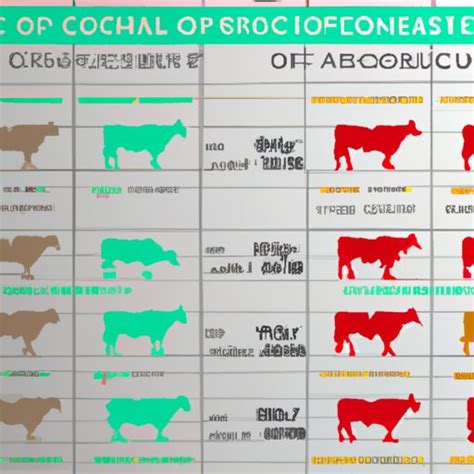Whole Cow Cost: What to Expect When You Buy a Whole Cow
Buying a whole cow might seem like a daunting task, but for many, it's a rewarding way to source high-quality, affordable meat. However, understanding the true cost involves more than just the initial purchase price. This comprehensive guide breaks down all the aspects of whole cow cost, helping you budget effectively and make an informed decision.
What Factors Influence the Price of a Whole Cow?
Several factors significantly impact the final cost of purchasing a whole cow. These include:
-
Breed and Weight: Different breeds of cattle vary in size and weight, directly affecting the amount of meat you receive. Larger breeds like Angus generally yield more meat than smaller breeds, leading to a higher upfront cost. The price is often quoted per pound of hanging weight (the weight of the carcass before butchering).
-
Processing Fees: This is a substantial cost often overlooked. Butchering fees encompass the labor, facility use, and services like cutting, wrapping, and freezing your beef. These fees can vary widely depending on your location and the butcher's services. Inquire about specific fees for things like custom cuts or vacuum sealing.
-
Transportation Costs: If you're buying from a farm that's not close to your home, you'll need to factor in transportation costs to get the cow to the butcher and then to your home.
-
Delivery and Storage: Depending on your arrangement with the farmer and butcher, you might incur additional fees for delivery to the butcher or for storage if you need the meat kept frozen for an extended period.
-
Aging: Some butchers offer aging services which tenderizes the meat, increasing the quality but also the overall cost.
How Much Does a Whole Cow Typically Cost?
This is a tricky question to answer precisely, as prices fluctuate greatly based on the factors discussed above. However, you can expect to pay anywhere from $3-$6 per pound of hanging weight for the cow itself. Keep in mind that this is before processing and other associated fees. The total cost, including butchering and other expenses, could easily reach $3000-$6000 or even more for a typical-sized cow.
What About the "Hidden" Costs?
Beyond the obvious expenses, remember these often-missed costs:
-
Freezer Space: You'll need ample freezer space to store a whole cow. If you don't have enough, consider renting a freezer unit or coordinating with family and friends to share the cost and the meat.
-
Vacuum Sealing Supplies: If you plan on vacuum sealing your meat for long-term storage, you’ll need to factor in the cost of the vacuum sealer bags or rolls.
-
Time Commitment: While incredibly rewarding, buying a whole cow does involve time commitment for planning, picking up the meat, and organizing storage and distribution.
What to Expect After Purchasing: Meat Yields and Cuts
Understanding the typical meat yield from a whole cow is vital for planning:
-
Ground Beef: This is usually the largest portion, making up around 20-25% of the total weight.
-
Roasts: Expect a good amount of roasts (chuck, sirloin, etc.), forming a significant portion of the yield.
-
Steaks: The percentage of steaks (ribeye, strip, tenderloin) will be smaller than ground beef and roasts.
-
Other Cuts: You’ll also receive less-expensive cuts like stew meat, brisket, and short ribs.
H2: How to Find a Farmer and Butcher
Finding a reliable farmer and butcher is crucial for a successful whole-cow purchase. Consider these tips:
-
Local Farmer's Markets: Start by checking your local farmer's markets for producers who offer whole or half cows.
-
Online Resources: Websites and online forums dedicated to local food sourcing can connect you with farmers in your area.
-
Word of Mouth: Ask friends, family, and neighbors for recommendations.
H2: Is Buying a Whole Cow Right for Me?
Buying a whole cow is a significant commitment. Consider these factors before making the purchase:
-
Storage Capacity: Ensure you have sufficient freezer space.
-
Budget: Accurately calculate all potential costs.
-
Consumption Habits: Consider if you'll realistically consume all the meat before it spoils. Sharing with friends or family can help mitigate this risk.
H2: Can I buy a half or quarter cow instead?
Yes! Buying a half or quarter cow can be a great alternative if you don't have the space or budget for a whole cow. This allows you to still enjoy the benefits of buying directly from a farmer while managing the quantity more effectively.
By carefully considering these factors and planning ahead, you can ensure that your whole cow purchase is a rewarding and cost-effective way to enjoy high-quality beef. Remember to always ask questions and negotiate prices to ensure you're getting the best deal possible.

